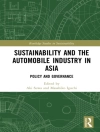The purpose of this book is to explore the ways that industries, under the pressures of global competition, balance sustained industrial competitiveness and robustness against major disasters. The book focuses mainly on the impact of disasters on supply chains for manufactured (mainly tradable) goods. A special feature of this particular theme is that companies have to deal with not only disasters that may come someday, but also global competition that industrial sites have to face every day. If, for example, companies add excessive amounts of inventory to their manufacturing sites for fear of the next major earthquake, they may not survive long enough to see the next earthquake due to their loss of global competitiveness. Thus, on a practical side, this book proposes that companies can balance global competitiveness and the anti-disaster robustness of industrial sites, rather than simply choosing one or the other, if they organize their efforts under the principles of continuous improvement (kaizen) and lean production.We have adopted a framework rooted in a design-based view of manufacturing for the empirical analysis and practical proposals of this book. That is, we argue that a manufacturing process can be defined broadly as the flow of value-carrying design information to customers. It follows that the key to the quick recovery of supply chains is to make the design information’s stock and flow robust, visible, portable, recoverable, replicable, and restorable before and after disasters happen. Using these characteristics of information as a guide, companies need to build organizational capabilities for quickly recovering and/or moving the information assets embedded within the production processes that were damaged in a disaster. This book argues that such capabilities overlap to a large degree with the know-how and skills developed by kaizen activities.The empirical case studies contained in this book were conducted through extensive fieldwork at industrial sites mostly in Japan, which is known as one of the countries that is most vulnerable to natural disasters. Although the book mainly covers natural disasters (earthquakes, tsunamis, floods), there is also a chapter on a human-induced factory fire that had a major impact on Japan’s automotive supply chain. Based on the actual responses of Japanese companies (Toyota, Honda, Aisin Seiki, Epson, Renesas, and Riken, among others) to supply chain and production disruptions caused by major disasters, this book gives practical implications for firms that take a leading role in managing industrial supply chains.In particular, guidance is given on the ways in which supply chains can be diagnosed for vulnerabilities and the remedies that may be applied. One such countermeasure, virtual dualization, is explained in detail as a means for achieving both supply chain robustness and competitiveness for complex products that require intense coordination in their design and production. A common theme that runs throughout the chapter is the importance of building trust among the participants in a supply chain.
Takahiro Fujimoto & Daniel Arturo Heller
Industries and Disasters [PDF ebook]
Building Robust and Competitive Supply Chains
Industries and Disasters [PDF ebook]
Building Robust and Competitive Supply Chains
Купите эту электронную книгу и получите еще одну БЕСПЛАТНО!
Формат PDF ● страницы 332 ● ISBN 9781536129069 ● редактор Takahiro Fujimoto & Daniel Arturo Heller ● издатель Nova Science Publishers ● опубликованный 2017 ● Загружаемые 3 раз ● валюта EUR ● Код товара 7217516 ● Защита от копирования Adobe DRM
Требуется устройство для чтения электронных книг с поддержкой DRM












